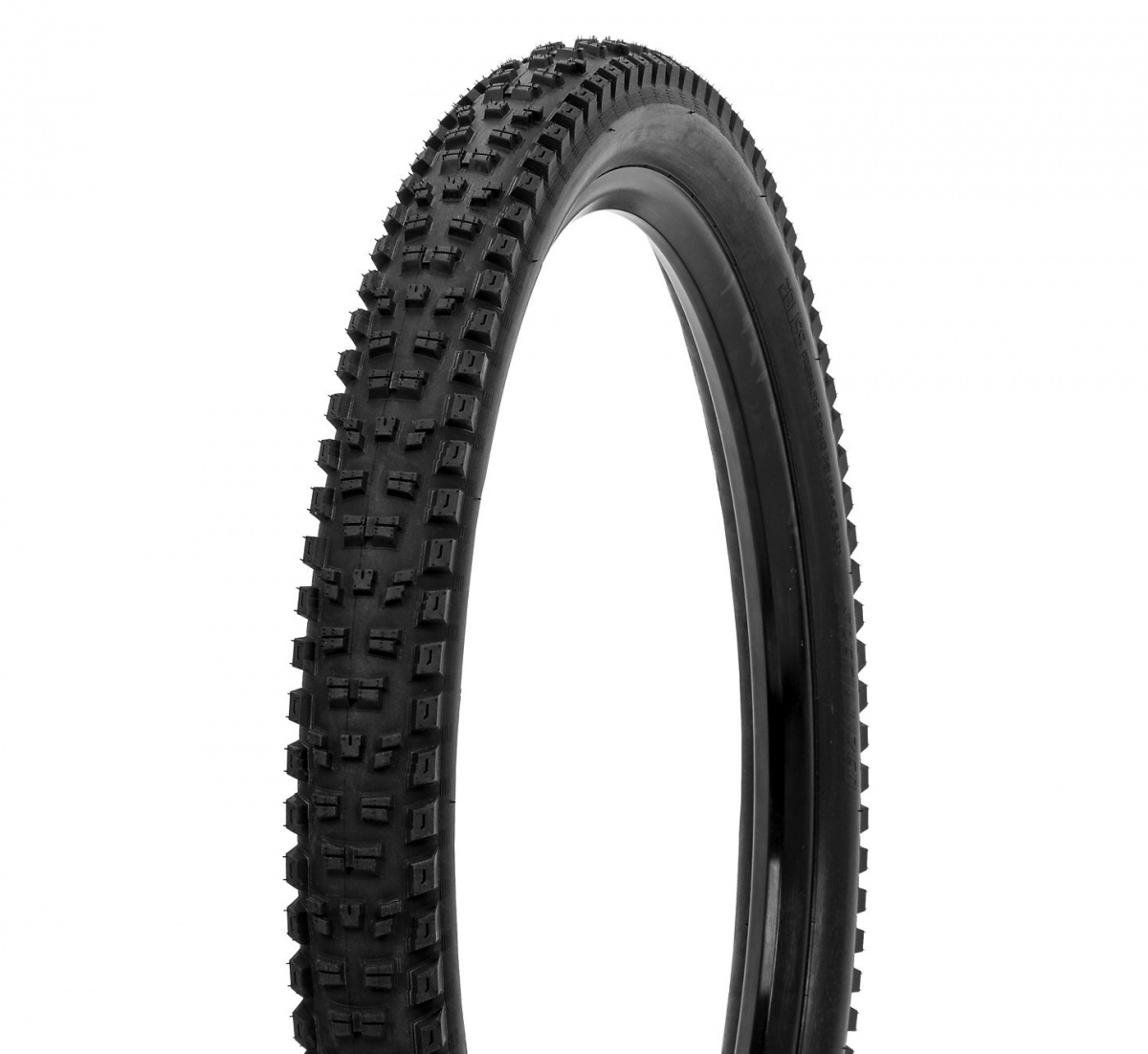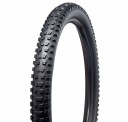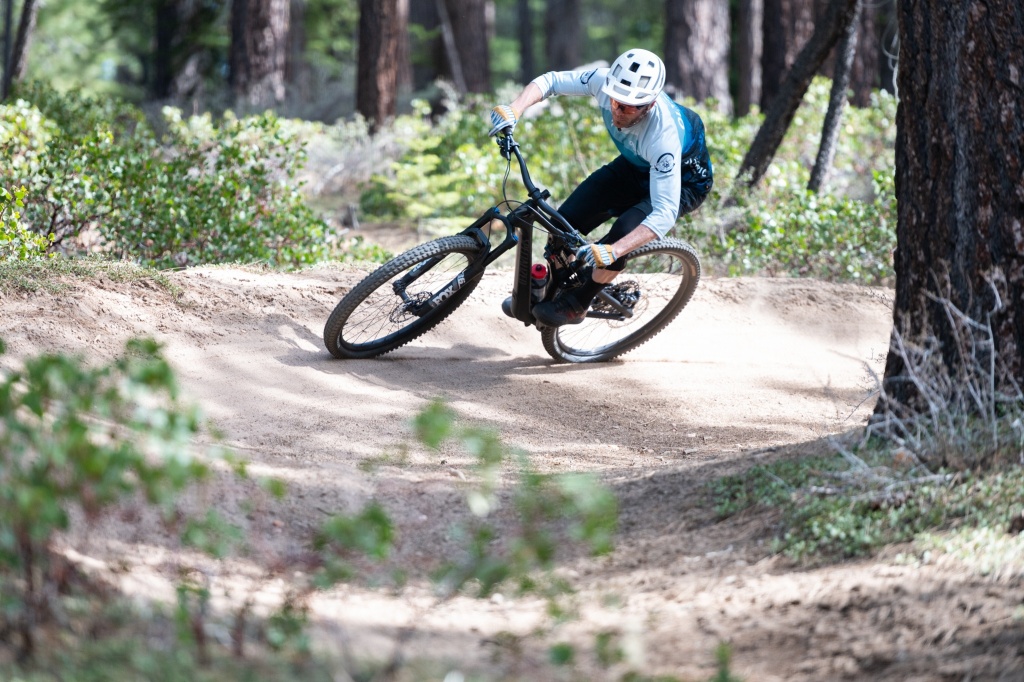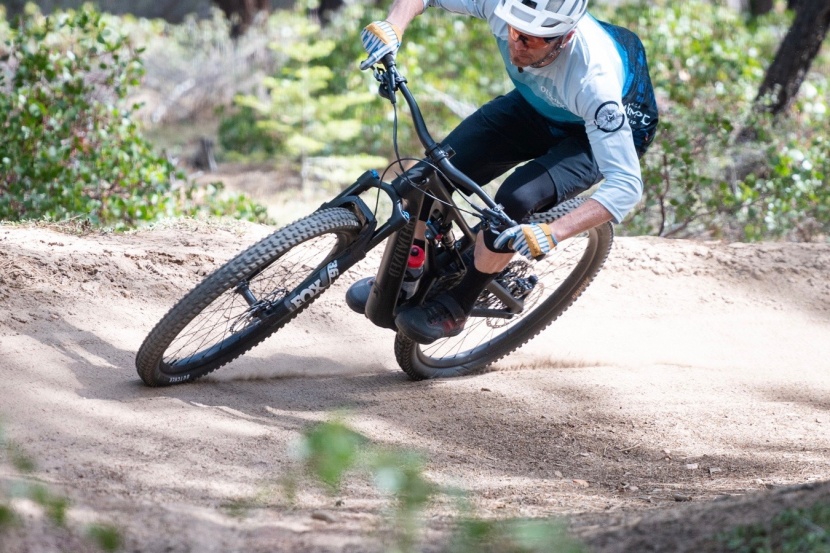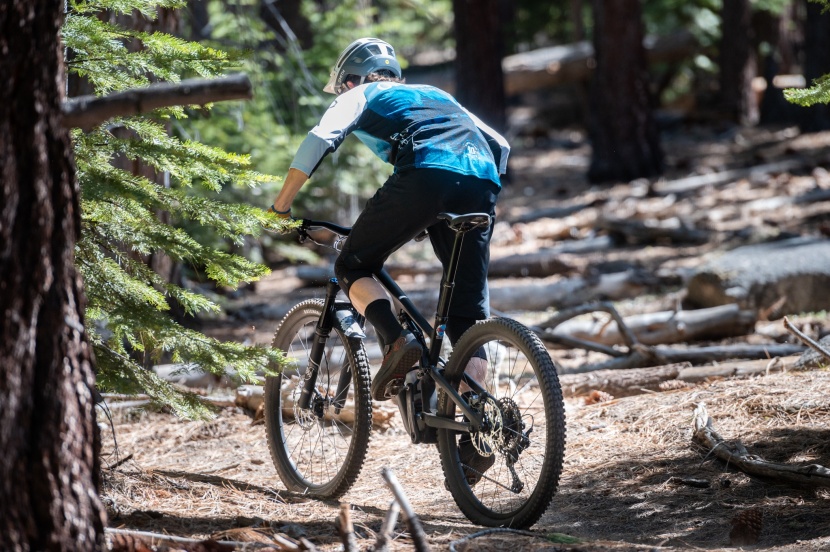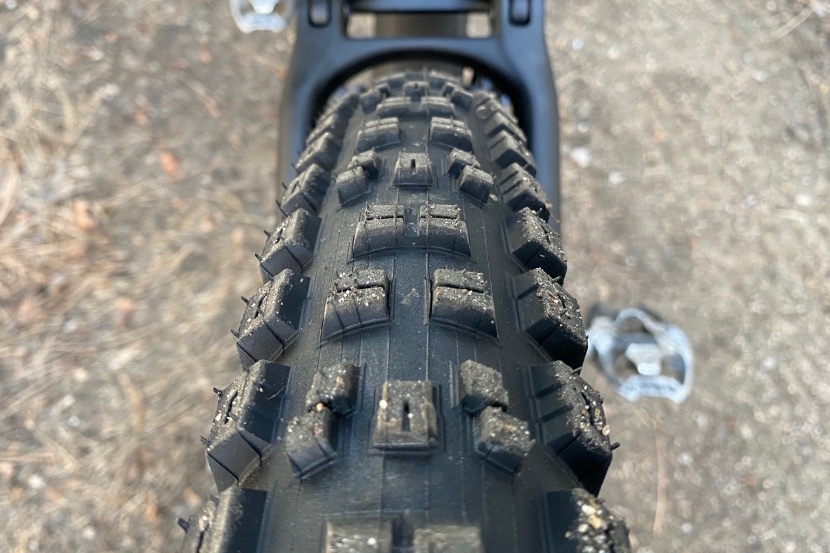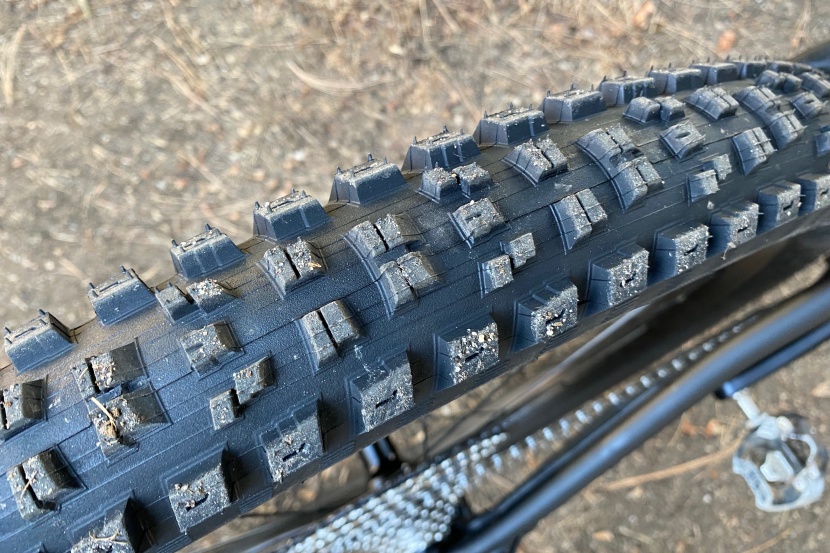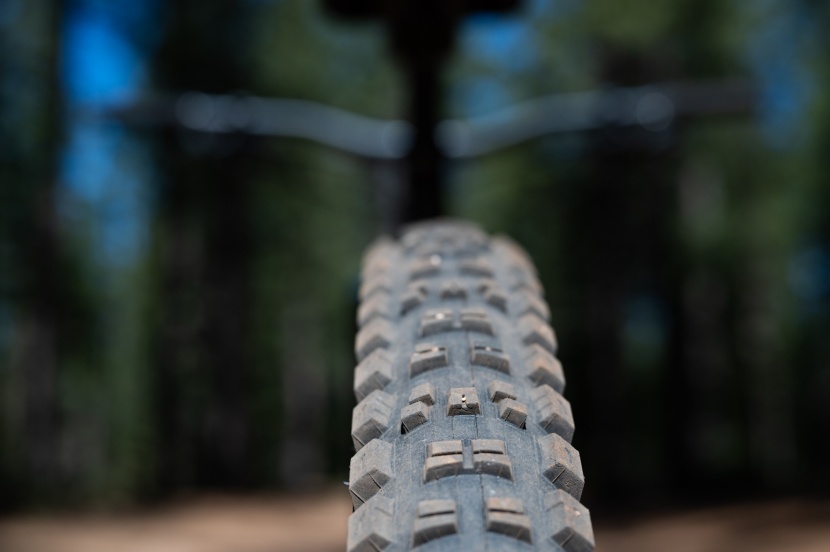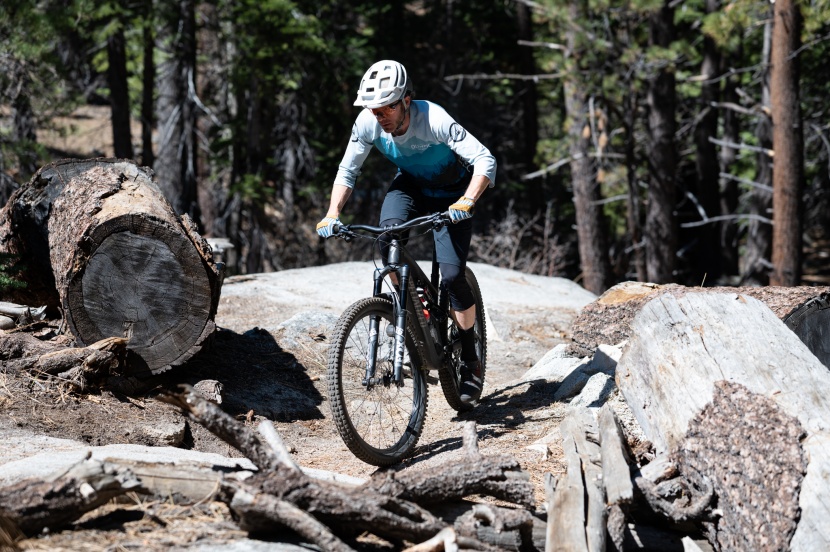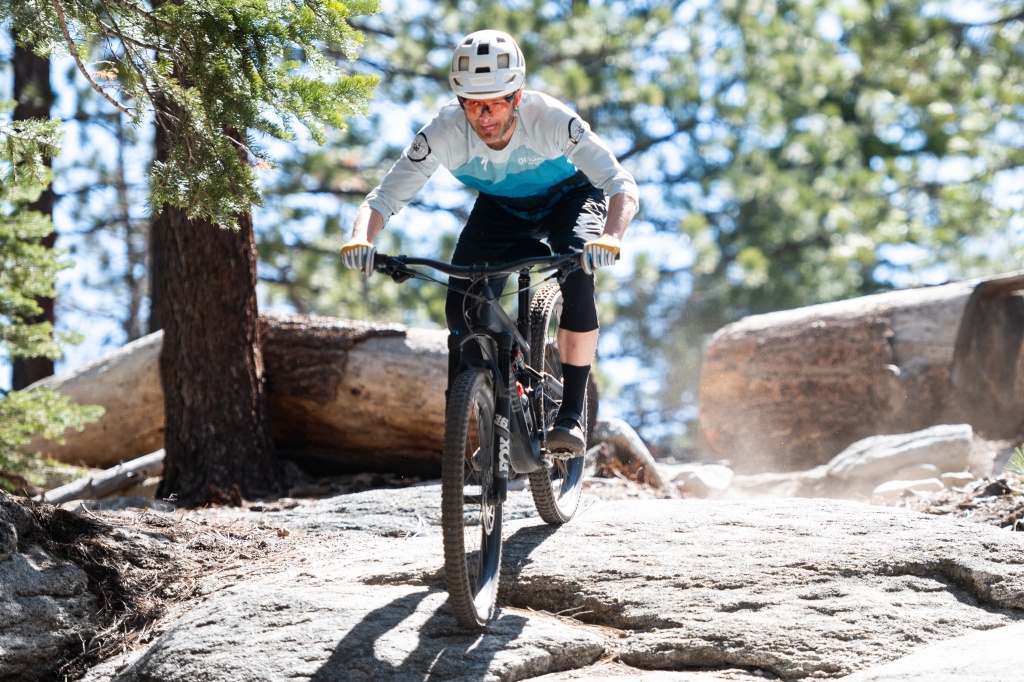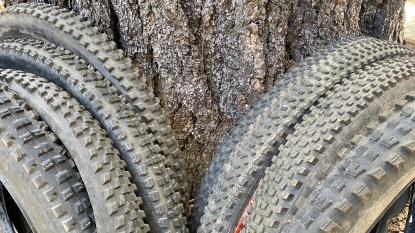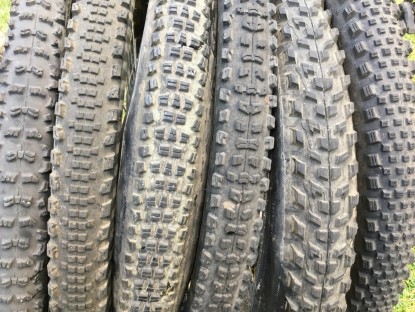Specialized Eliminator GRID Trail T7 Review
Our Verdict
Compare to Similar Products
 This Product
Specialized Eliminator GRID Trail T7 | |||||
|---|---|---|---|---|---|
| Awards | Best Bang for the Buck Rear Tire | Best Bang for the Buck Front Tire | Another Great Aggressive Front Tire | ||
| Price | $69.99 at Evo Compare at 2 sellers | $65 List $66.95 at Amazon | $70 List $69.99 at Backcountry | $64.99 at Amazon Compare at 3 sellers | $80 List $64.97 at Amazon |
Overall Score  |
|||||
| Star Rating | |||||
| Bottom Line | A versatile semi-aggressive rear tire with well-rounded performance and a reasonable price | A durable rear tire suited for aggressive trail riding in a range of conditions | Same great value, but improved grip and performance with a new rubber compound | A great front tire for aggressive trail riding in mixed conditions | A tough, durable, loose conditions tire for aggressive all-mountain and trail riding |
| Rating Categories | Specialized Elimina... | Continental Kryptot... | Specialized Butcher... | Continental Kryptot... | Michelin Wild AM2 2.4 |
| Cornering (25%) | |||||
| Pedaling Traction (20%) | |||||
| Braking Traction (20%) | |||||
| Rolling Resistance (15%) | |||||
| Longevity (15%) | |||||
| Installation (5%) | |||||
| Specifications | Specialized Elimina... | Continental Kryptot... | Specialized Butcher... | Continental Kryptot... | Michelin Wild AM2 2.4 |
| Size tested | 29" x 2.3" | 27.5" x 2.4" | 29" x 2.6" | 27.5" x 2.4" | 29" x 2.4" |
| Weight as tested | 945g | 1046g (27.5) | 1123g | 1012g (27.5) | 1037g |
| Front, Rear, or Both | Rear | Rear | Front, Both | Front | Front, Both |
| Casing Tested | GRID Trail | Trail | GRID Trail | Trail | Gravity Shield |
| Compound Tested | Gripton T7 | Endurance | Gripton T9 | Endurance | Gum-X |
| Bead | Folding | Folding | Folding | Folding | Folding |
| Tread Count (TPI) | 60 | 60 | 60 | 60 | 3 x 60 |
Our Analysis and Test Results
We tested the Specialized Eliminator Grid Trail T7 in a 29" x 2.3" size as a rear tire paired with a Butcher on the front. While it isn't a rear-specific tire, it is most commonly mounted on the back wheel with a more aggressive tire in the front. The T7 rubber compound falls in the middle of Specialized's new “T” scale from 5-9. We found the Eliminator's moderately aggressive center tread and sturdy side knobs to perform well in a wide range of conditions, although it sacrifices a bit of braking traction in trade for rolling speed. Overall, we were impressed by its well-rounded performance, especially considering its reasonable price. Our 2.3-inch test tire measured 2.4-inches and weighed in at 945-grams, just 5 grams below its claimed weight. This tire comes in 27.5 and 29-inch diameters in 2.3 and 2.6-inch widths. It is also offered in a Soil Searching tan-wall with a percentage of the proceeds benefiting trail projects.
Cornering
Since we tested the Eliminator T7 as a rear tire, our assessment of its cornering abilities are limited to that use. On the back of the bike, we found it to have predictable traction through turns, and it was the kind of tire you could more or less just forget about and let it do its work. We wouldn't say it has the most tenacious grip, but it communicated the edge of control well and was a great match to the Butcher.
The Eliminator T7 has a somewhat square profile with a substantial row of relatively closely spaced rectangular side knobs. The center tread consists of moderate height knobs with some extending into the intermediate zone. When you roll this tire on edge, the transition from the center tread to the side knobs feels seamless and quite easy. Once on edge, the side knobs take over and help this tire track well through conditions ranging from firm to moderately loose. While the tire uses the firmer T7 compound, the side knobs are relatively pliable and they flex and conform to surfaces well. All of the tread knobs also feature a sipe that further allows them to spread and grab onto the trail. We found the Eliminator to communicate well, and it was pretty obvious when the tire was going to let go and break into a drift.
The Grid Trail casing generally felt supportive enough, although we found that at lower pressures it could feel a bit squirmy. In fact, we even burped this tire while cornering super aggressively through a hard-packed berm. Anything below 24 psi, and we could feel the sidewall folding under hard cornering forces resulting in a loss of traction. Above that pressure, we didn't have any issues and enjoyed the relatively supple feel of the casing.
Pedaling Traction
In most conditions, the Eliminator T7 serves up great pedaling traction. From firm to moderately loose, the mid-height center tread has loads of teeth to claw into the surface without putting up too much rolling resistance. That said, it isn't the fastest roller, but it grips better in more conditions than the swiftest tires we tested.
Until we experienced super loose or muddy conditions, the Eliminator T7 dutifully did its job on the back of the bike and hooked up while pedaling on most other surfaces. The medium height center tread has moderate spacing which allows the individual knobs to use their edges or sink in and get purchase in looser soils. Generous siping also helps to enhance grip on firm dirt and slabs of rock, and this tire wasn't prone to spinning out unless it got really slick or loose. In really loose conditions we found that the moderate tread height didn't claw as deep as some more aggressive tires. The slightly firmer rubber also felt somewhat prone to slipping on wet rocks and roots, and the spacing of the tread made it prone to packing with mud in sloppy conditions.
Braking Traction
The Eliminator T7 provides pretty good braking traction but sacrifices a little in favor of rolling speed. It has a consistent feel and works well in most conditions. As with anything, there are tradeoffs, but we feel the Eliminator provides balanced braking performance.
No mountain bike tire scores gold stars across the board. The best braking tires typically roll slowly and the fast rollers usually don't have the best braking traction. This is where the Eliminator T7 strikes a great balance. It is reasonably fast-rolling, yet it still provides good, but not amazing, braking traction. The moderate height center tread knobs have vertical braking edges and lots of little teeth for grabbing onto the trail surface. They perform quite well in firm to moderately loose conditions, although they are somewhat prone to breaking into a skid when things get super loose. The T7 rubber isn't super tacky, but it grips well on smooth granite, packed dirt, and loose over hard conditions. We did find, however, that it falters a bit on wet rocks and roots compared to softer rubber compounds.
Rolling Resistance
The Eliminator T7 is a relatively fast-rolling tire considering its cornering chops and climbing traction. It's far from the fastest rolling tire, but we feel it's quite respectable and certainly more efficient than many other more aggressive options.
The Eliminator T7 has a moderately aggressive center tread with a directional repeating arrow-shaped design. The knobs are medium height with moderate spacing and ramped leading edges. They look and feel relatively similar to a Maxxis Aggressor or the WTB Trail Boss, comparable tires that blend pretty good rolling speed and relatively good traction in other areas. Again, there are faster rolling tires, but the Eliminator feels pretty efficient considering its other qualities.
Longevity
After weeks of testing, we found the Eliminator T7 to be a relatively durable tire. This tire took a beating on the rear of our test bike, with several hundred miles of hard riding. As a rear tire, it was subjected to lots of hard cornering, heavy braking, numerous rim outs, and a fair number of sidewall scrapes on sharp rocks. We experienced no pinches, punctures, or sidewall tears, despite plenty of poor line choices and sloppy riding. The T7 rubber compound has proven to be more durable than the softer T9, and it is wearing at a relatively even rate. As is typical, the side knobs are showing signs of erosion from hard cornering, but ours aren't tearing off or missing any large chunks of rubber. While we feel the Grid Trail casing is relatively robust, we did find that it was prone to squirming during hard cornering, and we think that super aggressive riders might consider a tougher casing for a rear tire.
Installation
The Eliminator T7 was relatively easy to install. Specialized has been making mountain bike tires for decades, and it seems they have their rim fit dialed. We were able to get the tire on the rim mostly by hand, using a tire lever to ease the last few inches over the edge. With a little more effort, we're pretty sure we could have mounted it completely by hand. Once on the rim, the fit is snug, but we weren't able to inflate it with a normal floor pump. We hit it once with the booster pump, and the bead seated with a few loud pings at right around 20 psi. We topped it off with a few supplemental pumps and were ready to ride.
Value
The Eliminator Grid Trail T7 is a good value. This tire retails for less than most other tires on the market, and it provides a versatile, well-rounded performance when used on the rear wheel.
Conclusion
The Eliminator Grid Trail T7 is a versatile tire for moderately aggressive trail riding that we feel is best suited for use on the rear wheel. This tire effectively blends good cornering and pedaling traction with relatively low rolling resistance. It doesn't have the most impressive braking traction, but we feel it strikes a good balance considering its other performance attributes. Pair it with a Butcher Grid Trail T9 in the front for a ripping combo at a fair price.
Other Versions
Specialized makes the Eliminator in multiple versions with the Grid Trail T7 falling in the middle in terms of sidewall protection.
The Eliminator Grid T7 shares the same rubber compound as the version we tested, but it has a lighter casing with only reinforced sidewalls and a slightly reduced weight.
The Eliminator Grid Gravity T7/T9 is the heavy-hitter with a “super tough 2-ply construction for cornering stability and flat protection”. It features firmer T7 rubber on the center tread and grippier T9 rubber on the shoulder lugs. The beefier construction does result in an increased weight compared to the Grid Trail version we tested. They also see a $10 bump in price.

